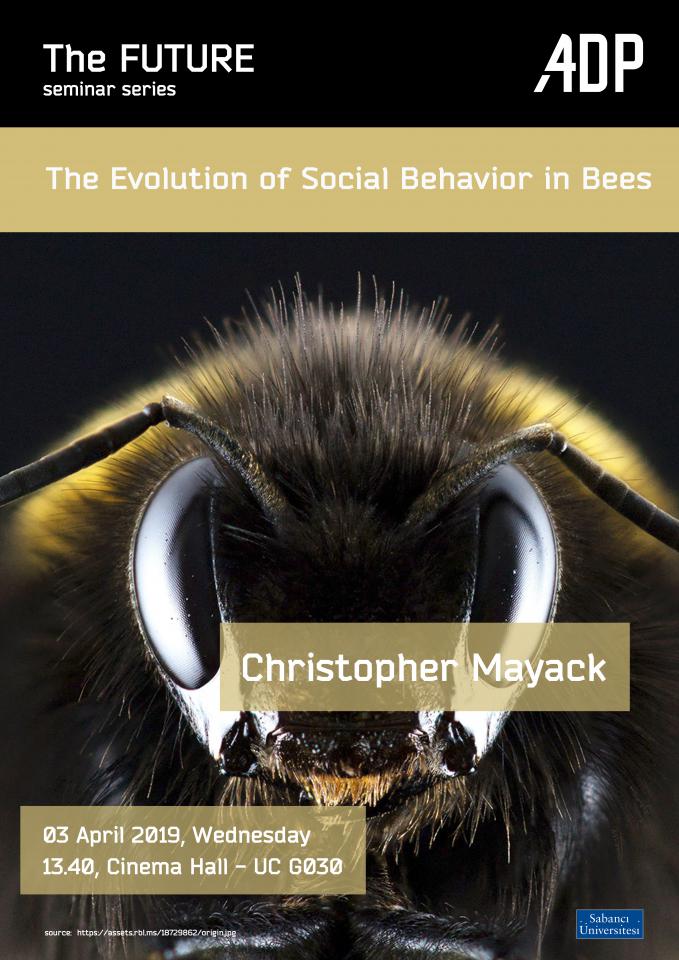FUTURE Seminar by Christopher Mayack
“The Evolution of Social Behavior in Bees”
Christopher Mayack
The famous behavioral ecologist Robert Trivers once said, “everybody has a social life” and it is true, humans are known to be highly social. Our highly social behavior is one of our defining traits that sets us apart from the many other organisms we come into contact with around the world, but we are not the only organism that is highly social. From almost the beginning of life on Earth, there are evidence of examples of social behavior in bacteria and fungi, demonstrating that there are different ways of being social, some of which we never thought of before. How and why the transition between solitary and social (and multicellular) lifestyles has occurred in evolutionary history has remained elusive. Social behavior has evolved multiple times in bees, in a relatively short amount of time, and at a whole range of levels. For example, some bees were social and more recently have become solitary, while others are facultatively social, which means depending on the environment they are living in sometimes they are social and sometimes they are solitary. The roughly 20,000 different species of bees present a great framework to make comparisons across their social lifestyles to understand how social behavior can evolve. In this talk, Christopher Mayack will discuss how we define different levels of social behavior, how and why social behavior has evolved, the trade-offs between living together versus venturing out on your own, and lastly, what bees can teach us about understanding our own social behaviors. Thanks to the work of the late Prof. Charles Michener, a profound expert in bees and their many lifestyles, we have much more insights about this topic than ever before.





